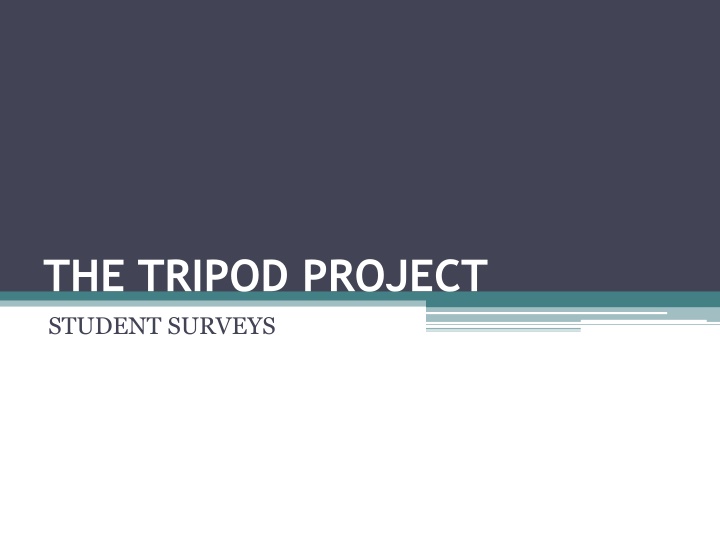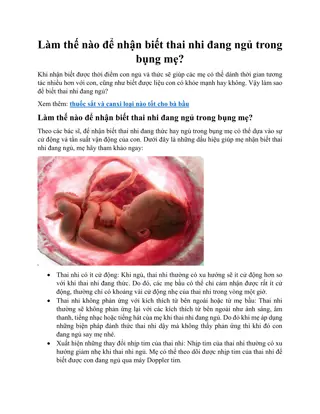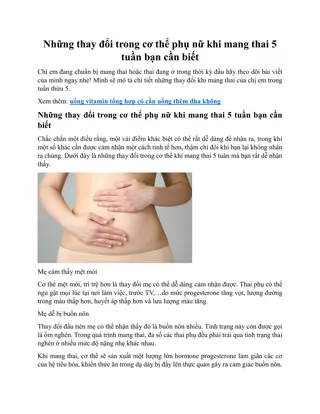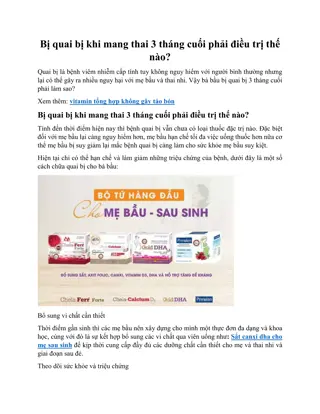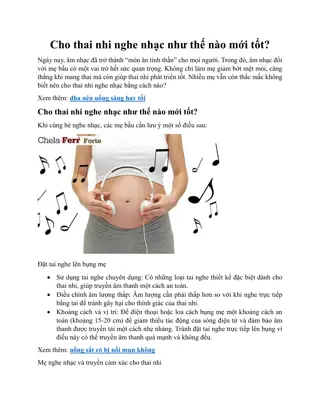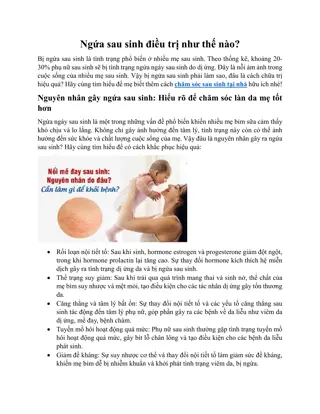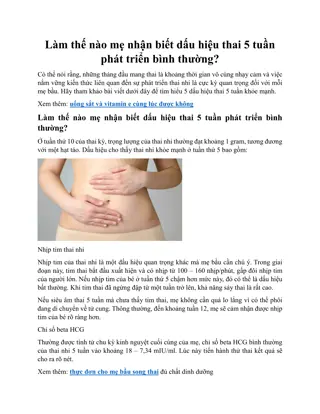THE TRIPOD PROJECT
The Tripod Project is a student voice survey that measures perceptions and perspectives, capturing key dimensions of school life and teaching practices. Developed by Dr. Ronald Ferguson of Harvard University, this project aims to enhance student achievement outcomes in content knowledge, relationship building, and pedagogical skill. The project focuses on the "7 Cs" – Care, Control, Clarify, Challenge, Captivate, Confer, and Consolidate – to improve educational experiences. Survey processes involve presentations to teachers, informing parents, and collecting data at district and school levels. Normative data is provided based on 750,000 responses, ranking teacher and school results by decile. The results show composite scores and ratings for different grade levels, highlighting strengths and areas for improvement.
Download Presentation

Please find below an Image/Link to download the presentation.
The content on the website is provided AS IS for your information and personal use only. It may not be sold, licensed, or shared on other websites without obtaining consent from the author.If you encounter any issues during the download, it is possible that the publisher has removed the file from their server.
You are allowed to download the files provided on this website for personal or commercial use, subject to the condition that they are used lawfully. All files are the property of their respective owners.
The content on the website is provided AS IS for your information and personal use only. It may not be sold, licensed, or shared on other websites without obtaining consent from the author.
E N D
Presentation Transcript
THE TRIPOD PROJECT STUDENT SURVEYS
What is the Tripod Project? Student voice survey Measures student perceptions and perspectives Captures key dimensions of school life and teaching practices as students experience them Developed and refined for more than decade by Dr. Ronald Ferguson of Harvard University
Student Achievement Outcomes Content Knowledge THE TRIPOD Relationship Building Pedagogical Skill
The 7 Cs Care: emotional safety Control: classroom management Clarify: clearing up confusion Challenge: press for effort and rigor Captivate: instruction is stimulating and relevant Confer: social reinforcement of learning communities Consolidate: connecting, reviewing and summarizing
Survey Processes Presentation to teachers Parents informed Students surveyed District and school level data unpacked Teachers unpack individual reports District PD Day
Normative Data based on 750,000 responses Norms provided for individual teacher and school results Each decile represents one-tenth of all classrooms in the norm group The bottom 10% of favorability ratings are ranked in the 1st decile and the top 10% are ranked in the 10th decile
Early Elementary (K-2) Composite Score: 76% 6th Decile Care: Challenge: Control: Clarify: Captivate: Confer: Consolidate: 90% 8th Decile 82% 6th Decile 55% 4th Decile 80% 5th Decile 74% 7th Decile 76% 7th Decile 77% 5th Decile
Elementary (3-5) Composite Score: 70% 6th Decile Care: Challenge: Control: Clarify: Captivate: Confer: Consolidate: 89% 9th Decile 75% 3rd Decile 70% 10th Decile 81% 5th Decile 56% 3rd Decile 55% 4th Decile 66% 3rd Decile
Middle School (6-8) Composite Score: 64% 9th Decile Care: Challenge: Control: Clarify: Captivate: Confer: Consolidate: 63% 8th Decile 74% 7th Decile 64% 10th Decile 69% 7th Decile 63% 8th Decile 50% 8th Decile 63% 7th Decile
High School (9-12) Composite Score: 54% 5th Decile Care: Challenge: Control: Clarify: Captivate: Confer: Consolidate: 50% 4th Decile 61% 4th Decile 62% 9th Decile 58% 4th Decile 52% 6th Decile 42% 4th Decile 51% 3rd Decile
How are we using this data? Individual goal setting for teachers School Action Plans District Planning Professional Development 46 workshops in the 7C s offered at the full district workshop day
Next Steps 3 Data Points to identify trends Continue to offer workshops Monitor growth and improvement Focus on effective practice
